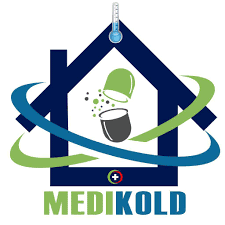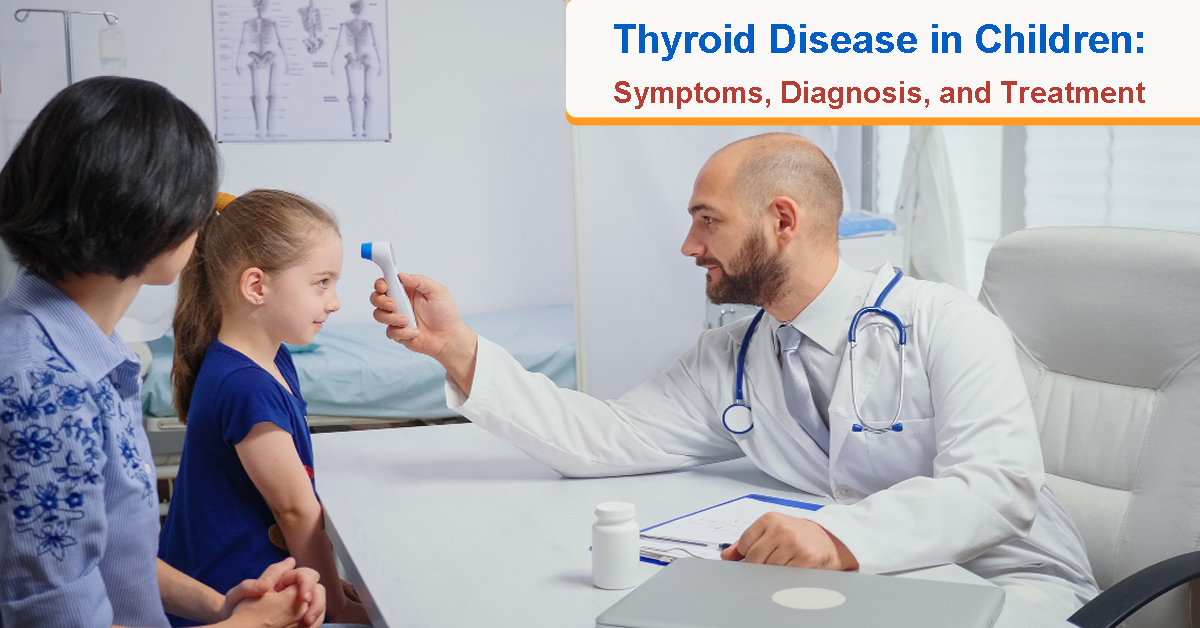The thyroid is a hormone-producing gland in the neck that controls the body’s metabolism. In children, the thyroid plays a vital role in growth & development.
Thyroid Disease in Children: Symptoms, Diagnosis, and Treatment
Several thyroid disorders can affect children, including:
-
- Hypothyroidism: This is when the thyroid gland doesn’t produce enough hormones. It can cause slowed growth, weight gain, and fatigue.
- Hyperthyroidism: This is when the thyroid gland produces too much hormone. It can cause weight loss, rapid heartbeat, and nervousness.
- Goiter: This is when the thyroid gland becomes enlarged. It can be caused by an underlying thyroid disorder or a deficiency of iodine in the diet.
- Thyroid nodules: These are lumps that can form in the thyroid gland. Most thyroid nodules are benign (noncancerous), but some can be cancerous.
If your child has thyroid disorders, it’s essential to work with a healthcare provider to manage the condition and ensure that your child’s growth and development are not affected. This may involve taking medications to regulate thyroid hormone levels, surgery to remove the thyroid gland, or a thyroid nodule.
Blood tests are the most reliable way to determine if a child has a thyroid disorder, so it is best to consult a doctor as soon as possible if your child shows any signs of a thyroid issue. However, it is essential to take precautions regarding the thyroid in kids.
It’s also essential to ensure that your child gets enough iodine in their diet. Iodine is a crucial nutrient that the body needs to produce thyroid hormones. Good sources of iodine include iodized salt, seafood, and dairy products.
Must Know | What are the Benefits of Having a Family Doctor?
Understanding Thyroid Disease in Children
- Thyroid disease in children can manifest differently than in adults and can be challenging to diagnose.
- Early diagnosis and treatment are critical, as thyroid abnormalities in children can profoundly impact their physical and mental health.
- Symptoms of thyroid disease in kids include changes in energy levels, concentration, weight, and appetite.
- In addition, some children may experience persistent fatigue, fast heartbeat, or swelling in the neck due to enlarged thyroid glands.
- If thyroid disease is suspected, a range of Blood tests and ultrasounds are examples of testing used to confirm its presence.
- Regular doctor visits and blood tests are essential for monitoring the condition and ensuring proper management of thyroid levels.
- Treating thyroid problems can involve medication, lifestyle modifications, or dietary adjustments to ensure that the child’s hormones remain balanced and healthy.
Next, diet is essential in managing thyroid levels for kids with thyroid disorders. Proper diet must be monitored and maintained to ensure that it is balanced and appropriate for the child’s condition.
Trending – Home Care in Jodhpur
Treatment Options for Thyroid Disorders in Kids
- Thyroid disorders in kids can have a variety of treatments, including lifestyle changes and medications.
- Treatments may involve lifestyle changes like dietary changes or hormone replacement, depending on the type of disorder and its severity.
- In some cases, medications like anti-thyroid drugs may be required. Therefore, it is essential to have your child evaluated by a doctor to ensure they receive the best treatment for their case.
- Surgery is sometimes necessary if a benign or malignant tumor causes the thyroid disorder.
- However, in most cases, diet is an integral part of treating thyroid disorders in children. A diet that includes high-fiber foods like fruits, vegetables, and whole grains helps promote the healthy functioning of the thyroid.
- Natural supplements such as vitamins A, D, and E have also been found to help children with thyroid problems.
- Additionally, reducing caffeine and sugar intake can help create a more balanced diet for those suffering from a thyroid disorder.
- Depending on the severity of the disorder, kids may also need regular check-ups with their doctor to monitor their progress.
When Treatment isn’t Necessary
The thyroid function test may return normal when a kid is examined for hyperthyroidism or hypothyroidism, yet the child may still test positive for thyroid antibodies. That indicates the child has a higher chance of developing a thyroid issue. However, it only sometimes follows that they will. Even if thyroid antibodies are detected, the kid does not require treatment if thyroid levels are normal.
Thyroid Nodules
A bump that forms in the thyroid gland is known as a thyroid nodule. Adults tend to get nodules more frequently than cancer, though this is unusual. Children experience the reverse. Although pediatric thyroid nodules are uncommon, up to 25% of them may be cancerous.
Conclusion
In conclusion, thyroid conditions in kids are not uncommon and should be monitored with regular check-ups with a doctor. Depending on the severity of the disorder, kids may require additional care or medication to regulate their thyroid levels. Therefore, parents need to be aware of the signs and symptoms of thyroid conditions to identify them early and begin any necessary treatments.



